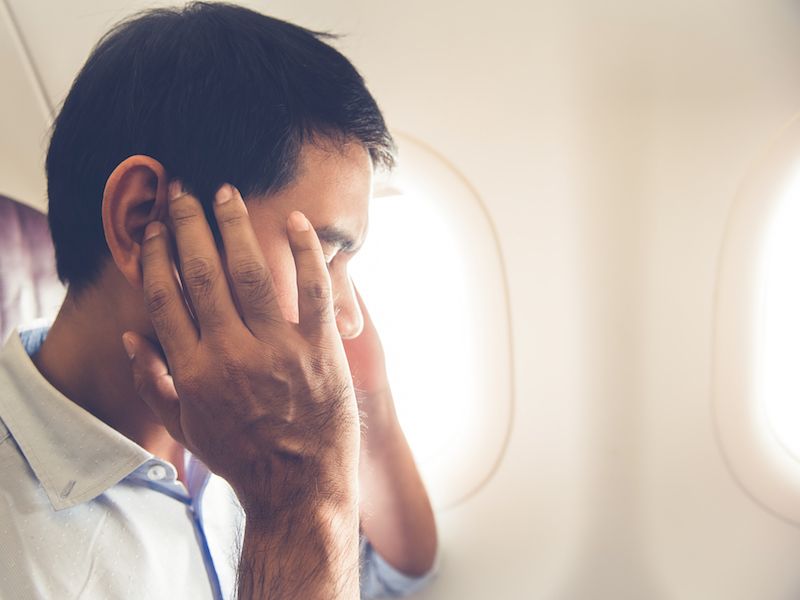
With tinnitus, it’s normal to have good and bad days but why? Tinnitus is the technical term for ringing in the ears, a condition that more than 45 million Americans experience, according to the American Tinnitus Association, and that’s accompanied by hearing loss by around 90 percent of them.
But what is tough to comprehend is why it’s almost non-existent on some days and on others the ringing is so invasive. It’s not entirely clear why this occurs, but some common triggers may clarify it.
What Is Tinnitus?
Tinnitus describes a condition where the patient hears phantom noises such as:
- Ringing
- Hissing
- Roaring
- Buzzing
- Clicking
You hear it, the guy right next to you can’t, which is part of what makes tinnitus so disturbing. The noise can vary in pitch and volume, too. One day it may be a roar and the next day be gone completely.
What Causes Tinnitus?
Changes in a person’s hearing are the most common cause. These changes could be due to:
- Ear bone changes
- Noise trauma
- Earwax build up
- Aging
A few other potential causes include:
- Head trauma
- Tumor in the neck or head
- Meniere’s disease
- High blood pressure
- Atherosclerosis
- Acoustic neuroma
- An issue with the carotid artery or jugular vein
- TMJ issues
For a certain percentage of people, there isn’t any apparent reason for them to have tinnitus.
See your doctor to have your ears tested if you suddenly observe the symptoms of tinnitus. The issue could be a symptom of a life threatening condition like heart disease or it could be something treatable. A side effect of a new medication may also be the cause.
For some reason the ringing gets worse on some days.
It’s somewhat of a medical mystery as to why some days are worse than others for those with tinnitus. And there could be more than one reason depending on the person. There are known triggers that might explain it, though.
Loud Events
Loud events like concerts, club music, and fireworks are enough to irritate your tinnitus. If you expect to be exposed to loud noise, your best option is to use hearing protection. They make earplugs, for example, that will permit you to enjoy music at a concert but reduce the impact it has on your ears.
You can also stay away from the source of the sound. When you attend a fireworks display don’t go up front and stay away from the front row when you’re at a concert. Combined with hearing protection, this will reduce the effect.
Loud Noises at Home
Loud noises around your house can also be a problem. For example, mowing the lawn is enough to induce tinnitus. Think about other things you do at home that might be an issue:
- Wearing headphones – The function of headphones is to boost the volume of your audio which could be aggravating your tinnitus so it could be time to lose those earbuds.
- Laundry – For instance, if you fold clothes while the washer is running.
- Woodworking – Power tools are loud enough to be an issue.
If there are things you can’t or don’t want to avoid such as woodworking, wear hearing protection.
Workplace Noise
Loud noises on the job have the same effect as a concert or the lawnmower. It’s especially crucial to wear ear protection if you work in construction or are around machinery. Talk to your manager about your ear health; they might provide the hearing protection you need. Let your ears rest during your off time.
Air Pressure Changes
Many people have experienced ear popping when they fly. An increase in tinnitus can happen from the noise of the plane engine and the shift in pressure. Consider hearing protection if you are traveling and bring some gum to equalize the air pressure.
You can experience changes in pressure without leaving your home, as well. If you have sinus problems, for instance, think about taking medication to help relieve them.
Medication
Speaking of medication, that might also be the problem. Some drugs are ototoxic, meaning they have an impact on the ears. Included on this list are these common medications:
- Diuretics
- Over-the-counter pain relievers
- Antibiotics
Consult your doctor if you experience an intensifying of tinnitus after you begin taking a new prescription. It might be possible to switch to something else.
Tinnitus is an irritation for some people, but for others, it can be disabling. To be able to determine how to control it from day to day, step one is to figure out what’s causing it.

